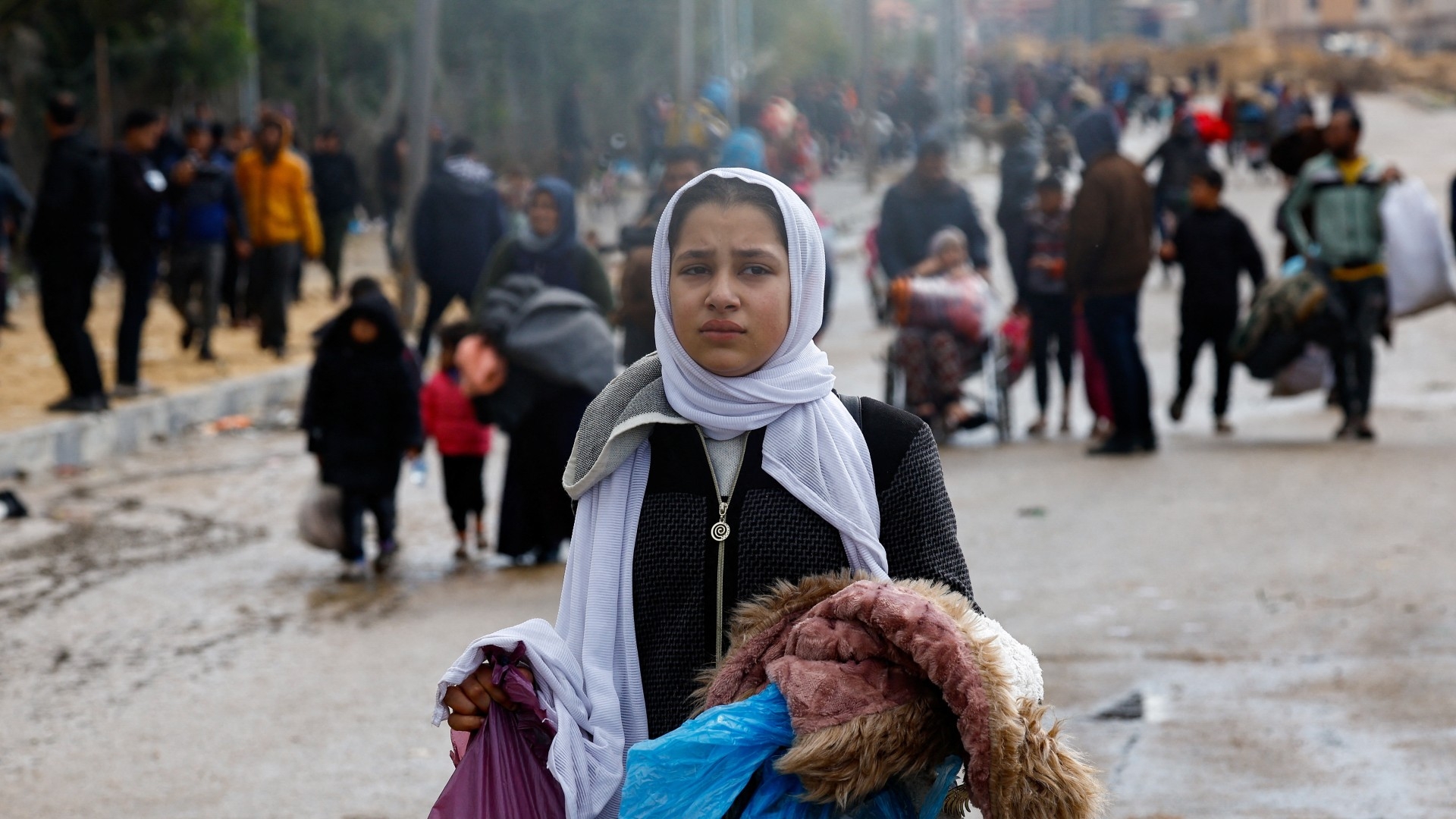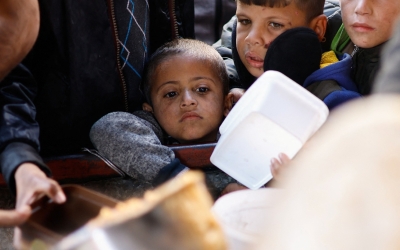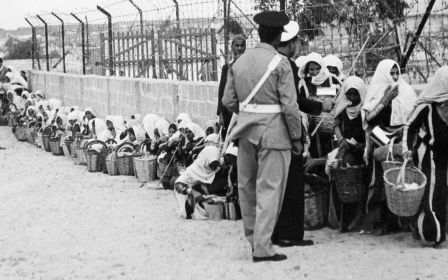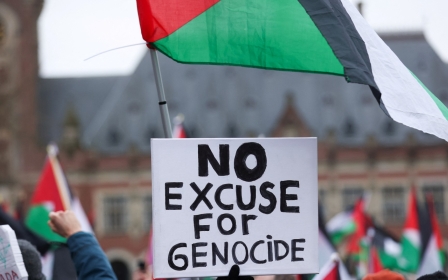War on Gaza: Defunding Unrwa is a war against all Palestinians

Defunding the sole UN agency that provides a lifeline for some 5.9 million Palestinians, including a besieged refugee population of over 2 million in Gaza currently facing a genocide, is egregious and aims to liquidate the Palestinian cause.
Since the United States announced on 26 January that it would suspend its funding for the United Nations Relief and Works Agency for Palestine Refugees (Unrwa), other countries, including the United Kingdom, Canada, Italy, the Netherlands, Switzerland, Finland, Australia, and Germany, have followed suit.
The decision to defund Unrwa followed Israeli allegations that 12 of the agency’s 13,000 staff in Gaza (constituting 0.092 percent of Unrwa's local staff in Gaza) may have been involved in Hamas's Al-Aqsa Flood Operation of 7 October.
Unrwa is funded almost entirely by voluntary financial contributions. Of the $1.17bn made in total pledges to Unrwa in 2022, the largest contributions came from the US ($343.9m) and Germany ($202m). As a result of these funding suspensions, Unrwa will lose almost 60 percent of its funding, amid warnings of a rapidly approaching famine due to Israel's genocidal onslaught on the Gaza Strip.
Without the sustained contributions of states and governments, Unrwa cannot continue to carry out its operations, nor provide humanitarian relief to Palestinian refugees in the West Bank, the Gaza Strip, Jordan, Syria and Lebanon.
New MEE newsletter: Jerusalem Dispatch
Sign up to get the latest insights and analysis on Israel-Palestine, alongside Turkey Unpacked and other MEE newsletters
Cutting off Unrwa's funding is thus a serious blow to its humanitarian work in the region and constitutes a death sentence to the besieged refugee population of the Gaza Strip.
Unrwa ruling and the ICJ
Despite Unrwa's immediate response to Israel's unsubstantiated allegations, including launching an external investigation into the matter and terminating the contracts of the staff members accused of being involved, the decision to suspend Unrwa funding by its major contributors was nonetheless made.
It is no coincidence that the defunding of Unrwa came swiftly after the International Court of Justice (ICJ) had issued its interim ruling recognising that the risk of genocide by the state of Israel was plausible.
Follow Middle East Eye's live coverage of the Israel-Palestine war
The timing of this defunding campaign, despite the measures taken by Unrwa, can only be understood to be politically motivated as a form of retribution for the ICJ ruling, and as a war against the Palestinian people as a whole.
Efforts to effectively dismantle Unrwa and end its mandate are not new. For a long time, the Israeli regime has called for the demise of the agency, which was established in 1949 to provide relief and works services to the 750,000 Palestinians who became displaced during the Nakba of 1948.
Consistent with official Israeli policy regarding Unrwa, the decision to cut off funding at this critical time is morally depraved. Not only does it amount to collective punishment, but it also defies the order made by the ICJ, as well as the obligations of states to prevent genocide.
In its provisional measures, the ICJ ordered that Israel “shall take immediate and effective measures to enable the provision of urgently needed basic services and humanitarian assistance to address the adverse conditions of life faced by Palestinians in the Gaza Strip”.
Effectively, this means that cutting off funds from Unrwa, the sole UN agency providing humanitarian support to Palestinians in Gaza, and especially at such a sensitive time, is designed to further contribute to the irreparable damage being inflicted on Palestinians.
Weaponisation of Unrwa funding
As the bombardment of Gaza will soon enter its fifth month, genocidal intent has been made very clear by different Israeli officials, as was established by the submission made by South Africa and upheld by the ICJ.
Instead of immediately suspending financial aid and military assistance to Israel, putting an end to economic and diplomatic support for a colonial regime responsible for genocide, these western countries are choosing to suspend the provision of humanitarian aid and the vital services that Unrwa provides to Palestinian refugees.
Instead of pushing for accountability, they are time and again affirming their unconditional support for the Israeli regime, distracting from the ICJ ruling and preventing the enforcement of the order.
In a clear violation of their legal obligation to prevent genocide, the cutting of Unrwa funding amounts not only to an explicit expression of these countries’ complicity in it, but an endorsement of it, too.
While Unrwa's reliance on voluntary contributions and financial support subjects it to changing political interests and agendas, the latest defunding campaign against it is a war against all Palestinians as it would allow for the destruction of the civil life of Palestinian refugees everywhere.
Eliminating Unrwa would leave 5.9 million Palestinian refugees without schooling, healthcare, jobs and infrastructure projects in the Palestinian refugee camps where Unrwa operates. This would effectively mean the destruction of Palestinian civic life in the region, not just in the Gaza Strip, and all without the need for military action.
Amid the unfolding genocide in Gaza, the defunding of Unrwa would render the future of Palestinian refugees murkier following the normalisation agreements between Arab states and Israel amid growing threats of the liquidation of the Palestinian cause.
In addition, where Palestinian refugees registered with Unrwa are protected and regarded as a group entitled to a right of return, as upheld by UN General Assembly resolution 194, the demise of Unrwa as the only agency concerned with Palestinian refugees would eliminate the last standing commitment towards the just plight of Palestinian refugees and their collective right of return as a group.
The weaponisation of Unrwa funding for political motives seems to be the new low for the West, showing that there is no end to their moral depravity.
The views expressed in this article belong to the author and do not necessarily reflect the editorial policy of Middle East Eye.
Middle East Eye delivers independent and unrivalled coverage and analysis of the Middle East, North Africa and beyond. To learn more about republishing this content and the associated fees, please fill out this form. More about MEE can be found here.






